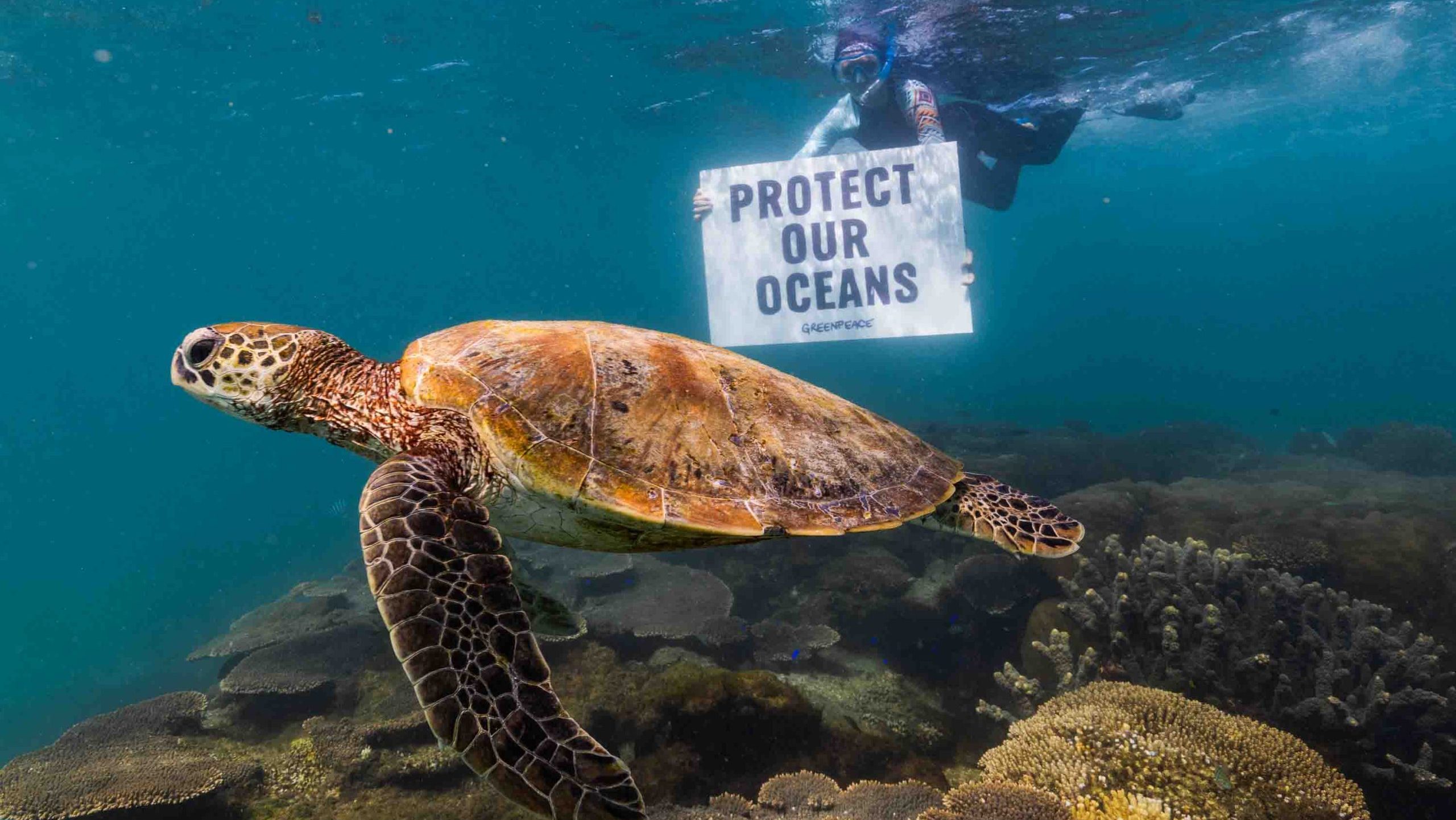Travellers are great appreciators of our natural world. But how many of us think to do what’s required to protect the places we love? Here, David Ritter, CEO of Greenpeace APAC, writes that it’s time to step in and stand up for our wild places—and there’s no better place to start than our oceans.
I’m a dreadful swimmer with pale skin that practically burns next to a fridge door light, let alone under the bright sun. I was never a naturally beachy kid, but I was always excited when our school camps were held by the sea.
Like tens of thousands of other West Australians, I bunked down in dorms and chalets everywhere from Rottnest Island and Augusta to Point Peron and Kalbarri, mucking around with my friends as our teachers watched on—amused and exasperated.
Under vast skies we body-surfed, played hard-fought ball games on the shore, and shared in the ambivalences of friendships being forged and tested over long days and tired evenings.
Yet if the sea could have spoken to our young souls then, the tides would have told a story of their loss and sorrow. We youngsters took the sea as we found it; like every generation assuming that what we saw was simply normal. But the stark truth is that for decades, our oceans have been, and remain, depleted and polluted.
In pursuit of our mission to secure an earth capable of nurturing life in all of its magnificent diversity, Greenpeace is working to attain every one of these outcomes. We are fuelled by the deepest truth—that all our fates depend on the living ecology of our planet.
Standing by the ocean sometimes, I imagine young people in a distant future participating in their own school camps beside the sea. I hope they can be caught up in themselves, in their own preoccupations, as teenagers must always be; but that one thing they no longer have to worry about is the health of life beneath the waves.
All because once upon a time, many years ago, the then-living generations won the campaigns that were necessary to protect our oceans from pollution and over-exploitation. So that the seas could resurge, and the kids of the future could stretch their eyes to far horizons, bright and wide, over wild seas full of life.

